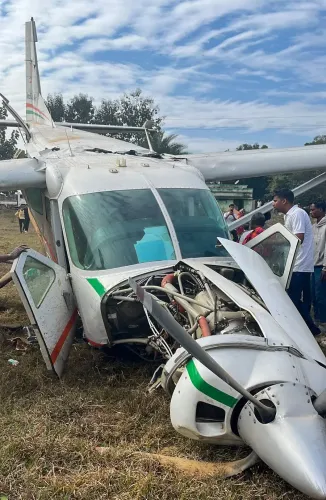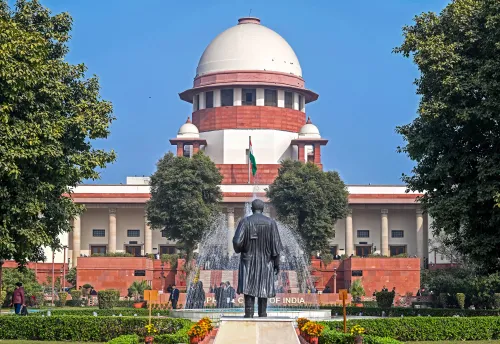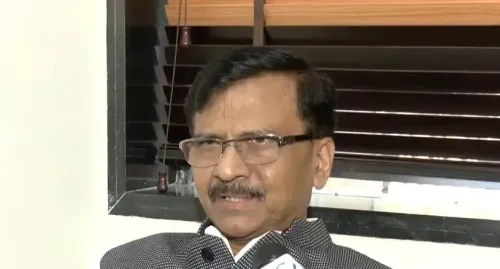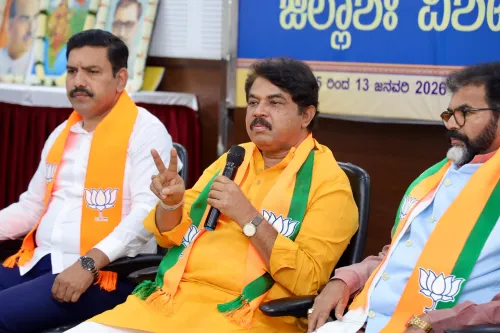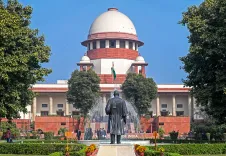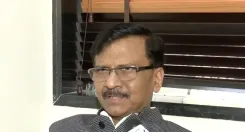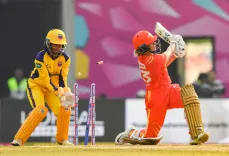Rajasthan's Chief Minister Unveils Plans for 26,000 Job Openings and a Poverty-Free Village Initiative
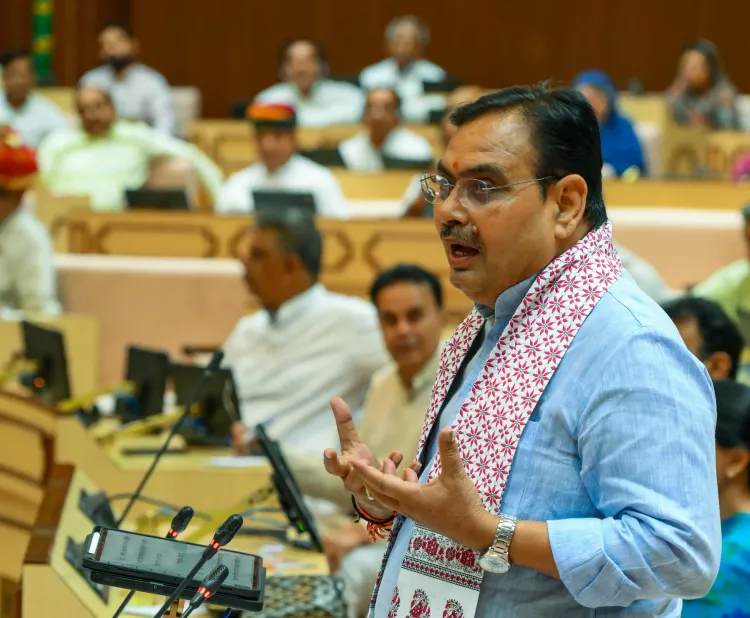
Synopsis
Key Takeaways
- 26,000 government jobs to be filled.
- Poverty-Free Village Scheme with Rs 350 crore allocated.
- 10,000 school teachers and 10,000 police positions to be recruited.
- One-Time Settlement Scheme for farmers with Rs 200 crore.
- Increased financial support for NGOs and women’s safety initiatives.
Jaipur, March 12 (NationPress) In a groundbreaking announcement aimed at eradicating poverty among BPL families in Rajasthan, Chief Minister Bhajan Lal Sharma revealed during an Assembly session on Wednesday that 26,000 government roles will be filled in the upcoming financial year.
These positions include those for teachers, police personnel, forest department employees, and various other government staff. Additionally, the state assembly ratified the budget presented on February 19.
The Chief Minister stated that the state government will launch the Poverty-Free Village Scheme to assist BPL families. "In the initial phase, Rs 350 crore will be allocated to help 5,000 villages overcome poverty. Moreover, educated unemployed individuals can opt for ₹6,000 under the Pradhan Mantri Internship Yojana instead of receiving an unemployment allowance," he said.
Sharma also mentioned plans to recruit 10,000 school teachers, along with 4,000 Patwaris and 1,750 employees for the Forest Department. Additionally, 10,000 vacancies in the Police department will be filled.
Furthermore, the Chief Minister introduced the Chief Minister Youth Employment Promotion Scheme, which will provide unemployed youth with a one-time financial aid of Rs 10,000.
Sharma also announced the formation of a high-level committee to scrutinize major urban development projects initiated during Shanti Dhariwal’s term as Urban Development Minister, such as the Kota Riverfront project.
This decision follows Dhariwal’s statement during the UDH grant debate, where he welcomed an inquiry into the projects executed during his administration.
Recently, Shanti Dhariwal stated during the debate on the grant demands that if there are any irregularities in projects from the RiverFront to others, the current government is welcome to investigate.
In an effort to support farmers, Sharma introduced a One-Time Settlement Scheme.
This initiative will target individuals with outstanding loans from the Land Development Bank, with Rs 200 crore allocated for this purpose.
Additionally, the amount that MLAs can allocate to non-governmental organizations from their MLA fund has been increased from Rs 10 lakh to Rs 25 lakh.
The Chief Minister also announced the establishment of a Nagar Vikas Nyas (UIT) in Dausa and Balotra. He further noted that a task force was set up by the Haryana government on March 5 to devise a joint DPR for transporting Yamuna water to Shekhawati.
Chief Minister Bhajan Lal Sharma criticized the previous Congress government for questioning the state government regarding the Rising Rajasthan Investment Summit.
He pointed out that during the previous Congress administration, an investment summit was held just before its term ended, where MoUs worth Rs 12.50 lakh crore were signed, but only Rs 30,000 crore were executed.
In contrast, he asserted that his government has signed MoUs totaling Rs 35 lakh crore, with Rs 2.24 lakh crore already implemented. By March 30, when the first quarter of Rising Rajasthan concludes, MoUs worth Rs 3 lakh crore will be executed. He defended the Rising Rajasthan initiative, stating that it aims to draw investments and promote development.
Responding to opposition criticisms, he questioned why the previous government organized an investment summit if such initiatives were ineffective.
He highlighted that representatives from over 32 countries participated in Rising Rajasthan, emphasizing its importance. The Chief Minister affirmed his government's dedication to fulfilling commitments and ensuring accountability.
He announced that 2,500 hand pumps would be installed statewide in the next financial year.
To combat water scarcity during summer, each district collector will receive Rs 1 crore in untied funds for arranging water tankers. For infrastructure development, Rs 10 crore will be allocated for road projects in each assembly constituency, with Rs 5 crore earmarked for missing link roads.
Zero accident zones have been identified, and rest areas for drivers will be built along highways. Additionally, 10 automatic testing stations will be set up, and 2,000 new permits will be issued to enhance transport facilities in rural areas.
To commemorate Rajasthan Day on a grand scale, Rs 25 crore has been allocated for events on March 30. Efforts will also be made to establish a campus of IIT Jodhpur in Jaipur.
Under the Mukhyamantri Shikshat Rajasthan Abhiyan, a residential school for children of sheep and camel herders will be set up in Rajsamand.
The financial assistance under the Lakhpati Didi Yojana will be raised from Rs 1 lakh to Rs 1.5 lakh. Furthermore, Rs 450 crore will be allocated to the Devnarayan Fund.
Farmers will also receive subsidies for the installation of 7,000 solar pumps. As part of welfare measures, 2,500 specially-abled individuals will be provided with scooties.
In the realm of animal husbandry, the state's first Center of Excellence for indigenous animals will be established in Pali at a cost of Rs 10 crore.
A new biological park will be created in Bharatpur.
To enhance women's safety, the number of patrolling units will be increased, and 400 new vehicles will be allocated to the police, along with 70 new forensic mobile units.
The Rajasthan Digital Mission will be initiated, alongside a new AI and machine learning policy.
A separate directorate will be established for ministry employees, and a State Administrative Unit Restructuring Council will be formed. In the education sector, 50 new primary schools will be opened, and 100 existing schools will be upgraded.


